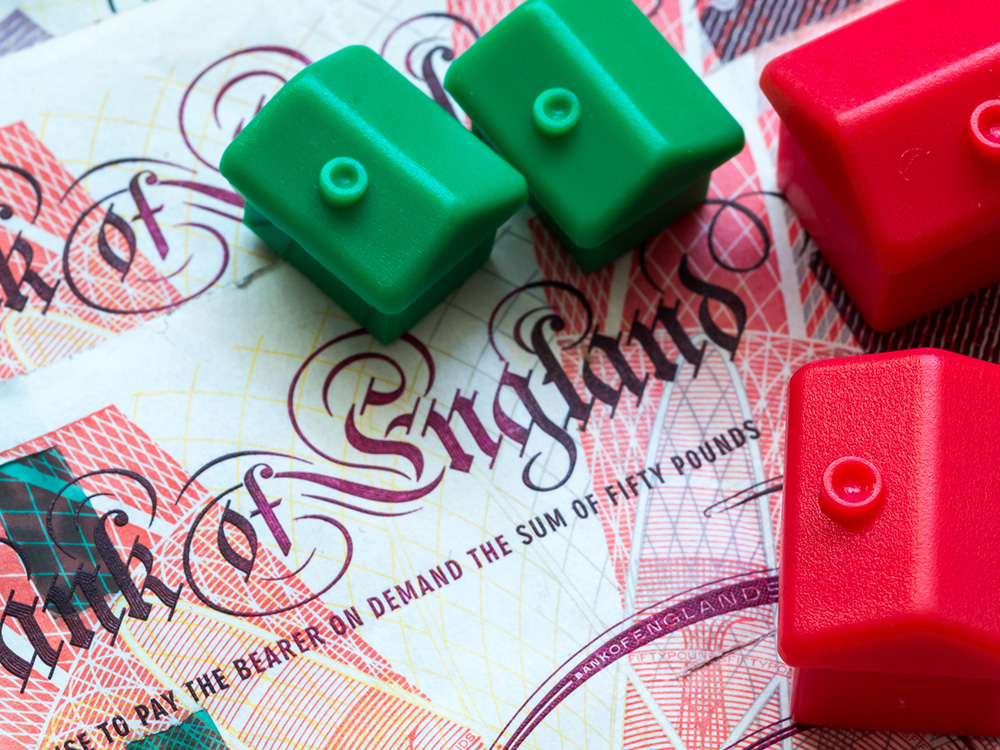On this page
How to get finance for an auction property Introduction to property auction finance What is auction finance? How does auction finance work? Step 1: Planning & research Step 2: Agreement in principle Step 3: Bid and win Step 4: Doing the deal Step 5: When the loan ends Can I buy a commercial property using auction finance? Is auction finance right for me?How to get finance for an auction property
Property developers can use auction finance to secure a property that is below market value, often from a motivated seller. It might even be appropriate for first-time developers or investors.

Introduction to property auction finance
For both experienced developers and property entrepreneurs, auctions might be a sensible approach to buying properties below market value. Whether it's a simple renovation project or a more extensive restoration, buying at the correct price can be the difference between profit and loss.
Auctions, on the other hand, might be a riskier way to buy property than traditional channels, and properties are auctioned on short time frames, leaving you little time to complete the essential research and due diligence.
We have a lot of helpful hints for property developers, as well as some specific tips for purchasing property at auction - keep reading to learn more about property auction finance.
What is auction finance?
Even for seasoned auction-goers, putting your hand up and bidding on a property worth hundreds of thousands of pounds can be a terrifying notion. If you place the winning bid, you'll normally be required to pay a non-refundable deposit on the day of the auction, with the remainder due within 28 days.
That means that auctions have a considerably shorter timeline than other methods of property acquisition, and unless you're a cash buyer, it can be tough to raise the funds in time, even if you have a lot of available equity across your property portfolio. Although auction property finance is a flexible solution that may be adjusted to meet specific needs, the general idea is that you'll enter into the auction room with an agreement in principle (AiP)– and thus have defined budgets and criteria in mind before bidding.
How does auction finance work?
With average asking prices in the UK hitting almost £350,000 and experiencing the fastest monthly increase in 20 years many auction properties are clearing six figures in value, even a 10% deposit can be a significant chunk of cash. Property auction finance can help in a number of ways, starting long before you step into the auction itself. With auction financing, you may pre-arrange your property loan so that you know exactly how much you can spend and even what type of property the lender will fund before the hammer falls. Here’s how auction finance works:
Step 1: Planning & research
The first step in getting auction financing is to figure out what kind of property you want to add to your portfolio and then identify an auction to attend. Then you can make a shortlist of homes from that auction that you're interested in and bring it to a broker or lender. You could also speak to the auction houses you're considering bidding at to find out which auction finance lenders provide loans to their buyers.
Top tips: If you're seeking a Buy-to-let (BTL) investment in residential property then consider where you're likely to see the best rental and capital yields. To avoid unwittingly buying a BTL in an undesirable location it's also generally advised to only purchase property in areas that you're familiar with.
Step 2: Agreement in principle
The next step is to complete the lender's provisional approval process, which requires you to provide personal information such as:
- full name
- date of birth
- current address
- address history for the past three years
You'll also have to supply details about the property you intend to use as security such as its open market value, its available equity and whether it's unencumbered or has a mortgage or any other loans secured on it. In this scenario, you can get an accurate idea of the maximum loan you're able to obtain using this security, the loan costs and fees. The lender should also be fairly confident that the loan stacks up.
If you're intending to use the property purchased at auction as security then the process is a little more complex. You'll be asked about its anticipated purchase price, its open market value, whether you have any plans on refurbishing, renovating and the projected associated costs. All these figures may be subject to change which means it's impossible for the lender to offer any certainty about the deal other than 'in principle' the loan stacks up.
After reading the property particulars, if you're interested in researching a property further the next step is to request the legal pack. Once received it's wise to ask your solicitor to review it to avoid any nasty surprises.
You should ensure you inspect the property, and if you're not a property professional then it's a good idea to take one along with you for the site visit. Remember a valuer will visit the property in order to create a valuation report for your lender, so go in with a mindset of 'where's are the problems'. Thoroughly inspect the condition of the property, from the roof structure, floor joists, to interior, you're looking for the use of asbestos, signs of mould, damp, subsidence, and Japanese knotweed in the garden.
It's not just the property you need to view, it's the location too. Ask yourself whether the local amenities are good, is the property close to a main road, a busy junction, an airport, a quarry, a tip, are there good schools in the area etc.
It’s also a good idea to consider your level of experience. From the lender’s perspective, property developers with an established track record of successful projects are much easier to lend to, because their risk is lower. While it’s possible to get finance if you don’t have much experience, it will often involve added security if you’re new to property development.
You may also be required to offer further information such as your earnings, credit history and current credit score, and expenditure. At this point, no supporting paperwork is necessary; however, you will be expected to show evidence of the information provided later. It should go without saying always be as accurate as possible when supplying figures to lenders. If there are discrepancies in the information you've supplied it will be uncovered during due diligence checks later, and it may jeopardise your loan.
Step 3: Bid and win
On auction day you'll now know how much budget you have to bid with and the property criteria the lender's comfortable lending against. Top tip: Stay within the criteria you've agreed with the lender as the lender's under no obligation to change the terms or criteria if you bid more than you can afford to pay. For example, you might have an agreement in principle to finance 80% of a four-bedroom property with a sale price of £400,000 - and in that scenario, you’d need to fund the 20% short-fall yourself, which would be £80,000, just by bidding 10% above the sale price you'll likely need to increase the deposit you need to put towards the property by a further £40,000 - not an easy task.
Step 4: Doing the deal
So, congratulations auction buyers, you're the winning bidder! Now what? You'll need to pay the 10% deposit there and then. You'll then have no more than 28 days to settle the outstanding amount. Acting fast will help you ensure reduced costs, and fees and reduce the risk of not sourcing the funding you need to complete the purchase. Top tip: Act fast - if your loan deal falls through then the more time you give yourself to organise another the better. Auction finance can be completed within 7 days if each party is motivated to do so but on average expect it to take 10-15 working days. Remember your deposit is at risk if you fail to meet the 28-day deadline on your auction purchase.
Step 5: When the loan ends
When your loan term ends you must repay the auction finance loan. There are several ways to repay the loan amount. Typical exit strategies are either the sale of the property or refinance the loan onto a traditional residential mortgage or buy to let mortgage. If you're not yet ready to exit the loan then you could seek bridging loan refinance.
Can I buy a commercial property using auction finance?
The simple answer is yes you can use property auction finance for commercial and semi-commercial auction purchases. Whilst the auction finance rates and the lending criteria are different to that for residential properties, there are several specialist auction finance lenders who will lend on commercial property.
Is auction finance right for me?
Property auction finance is a useful tool if you wish to acquire property at auction but your operating money is locked up in equity in your portfolio. Perhaps you have a good quantity of working capital in the bank, but you'd prefer to invest it in a more desirable property for a potentially higher return.
It's also a good idea to think about how much experience you have. Property developers with a proven track record of successful projects are significantly easier to lend to from the lender's standpoint because their risk is reduced. While it is possible to obtain financing without much expertise, if you are new to property development, you will most likely be required to provide additional security.
Overall, auction finance allows you to expand your portfolio even if the majority of your capital is invested in other properties. It allows you to participate in property auctions, which are one of the most exciting methods of acquiring property.
Auction Finance
Property Auction Finance is short-term finance used to purchase property at auction, including: uninhabitable properties, doer-upper's, short-lease, refurbs, flips, buy-to-lets (BTLs), conversions, renovations, development, land & commercial opportunities. It enables investors to take advantage of below market value (BMV) properties being sold at auction providing the finance to complete purchases within the 28-day limit.
Discover More





